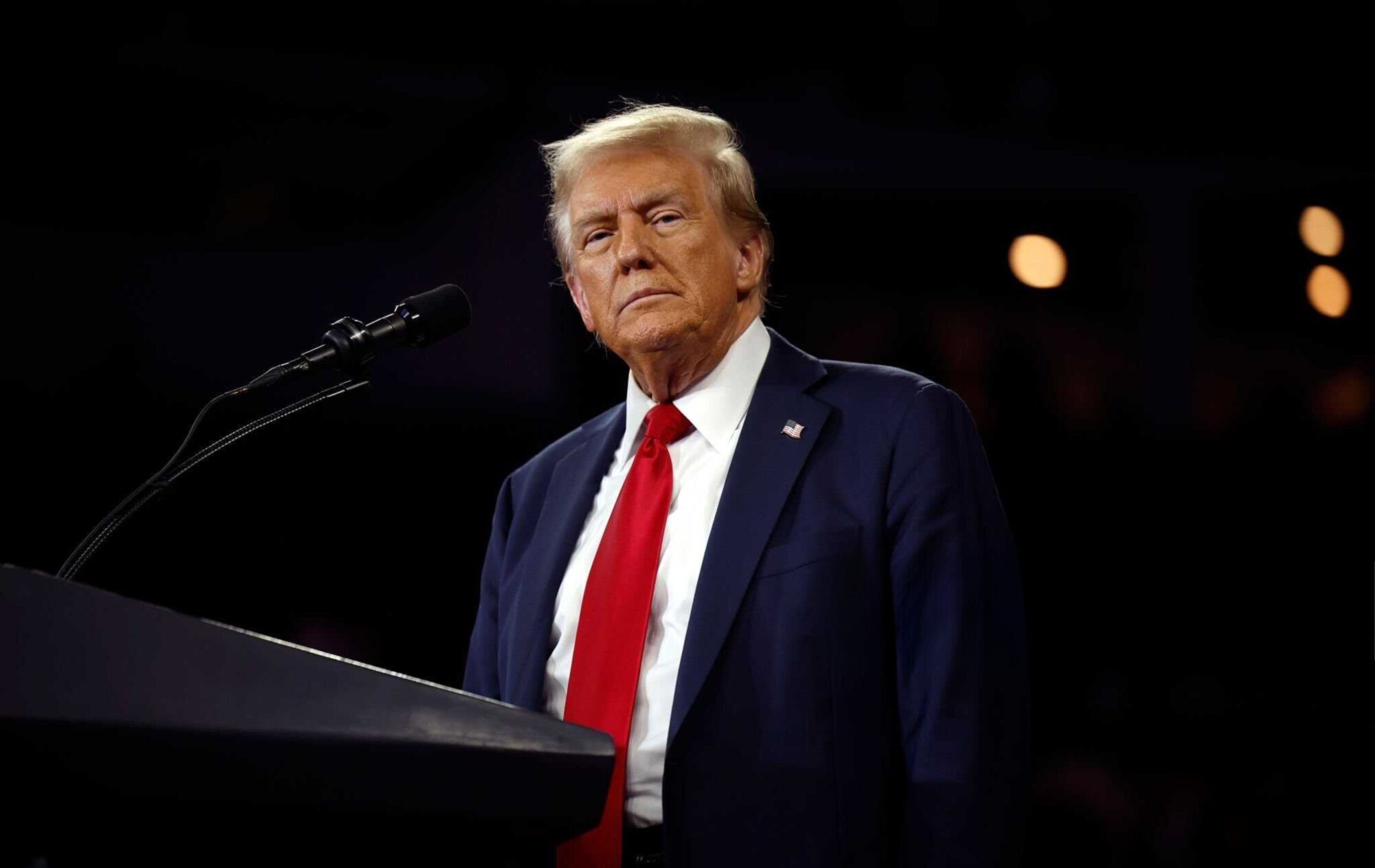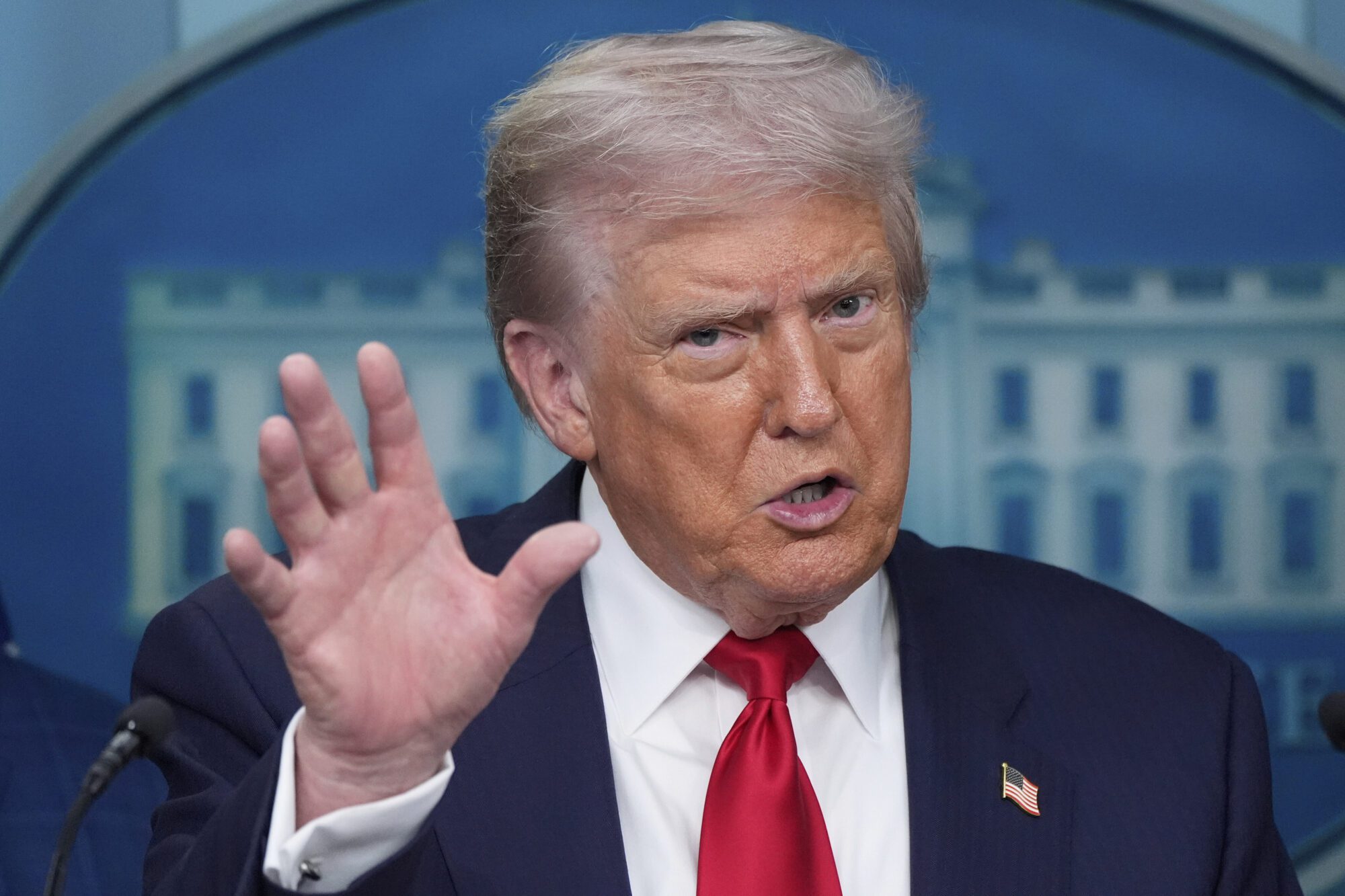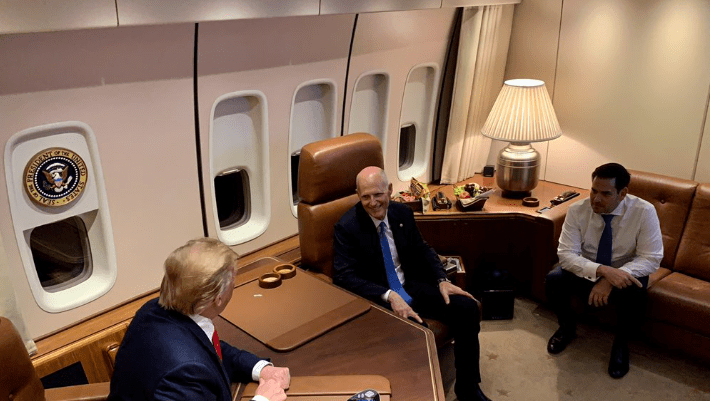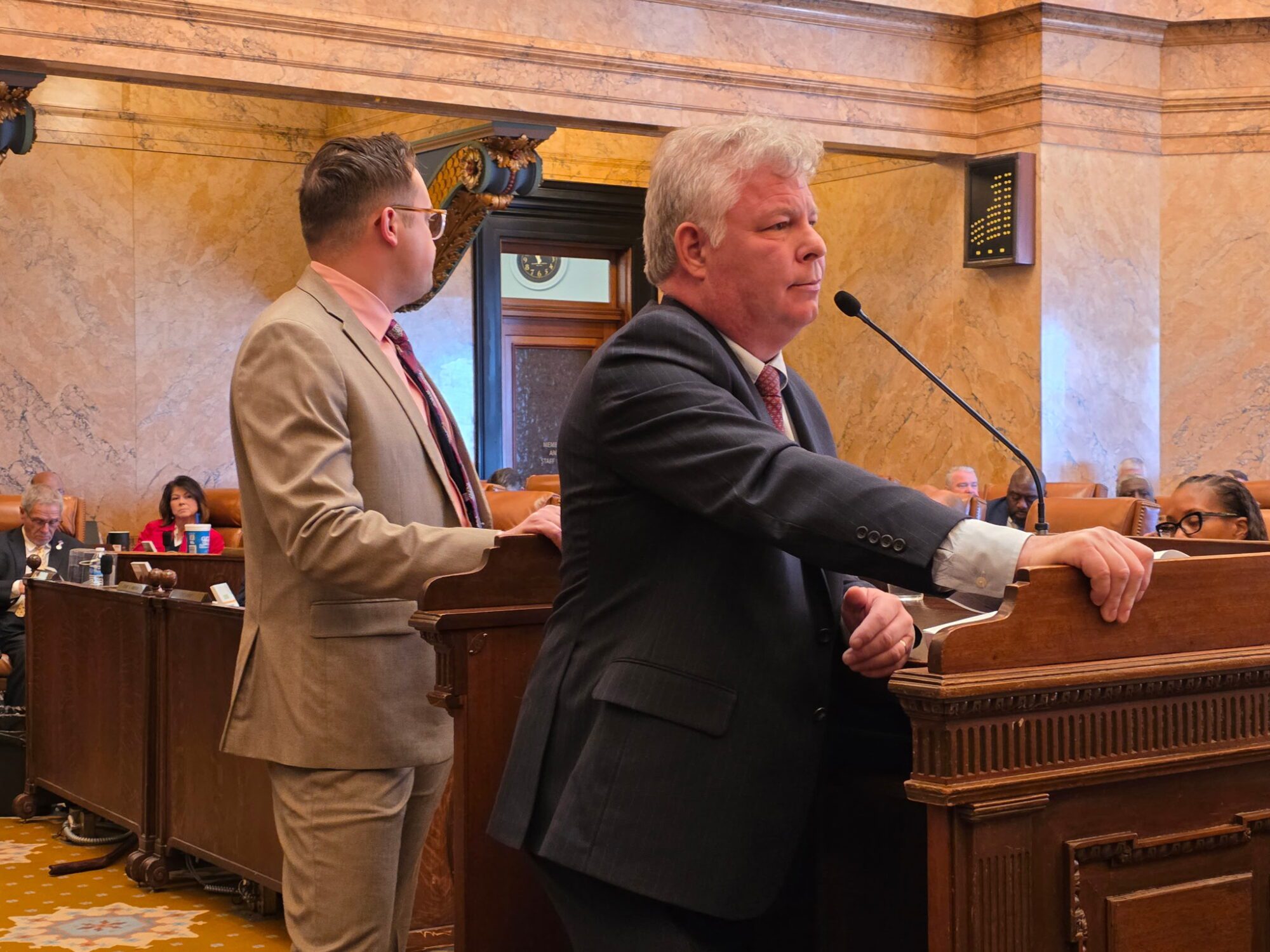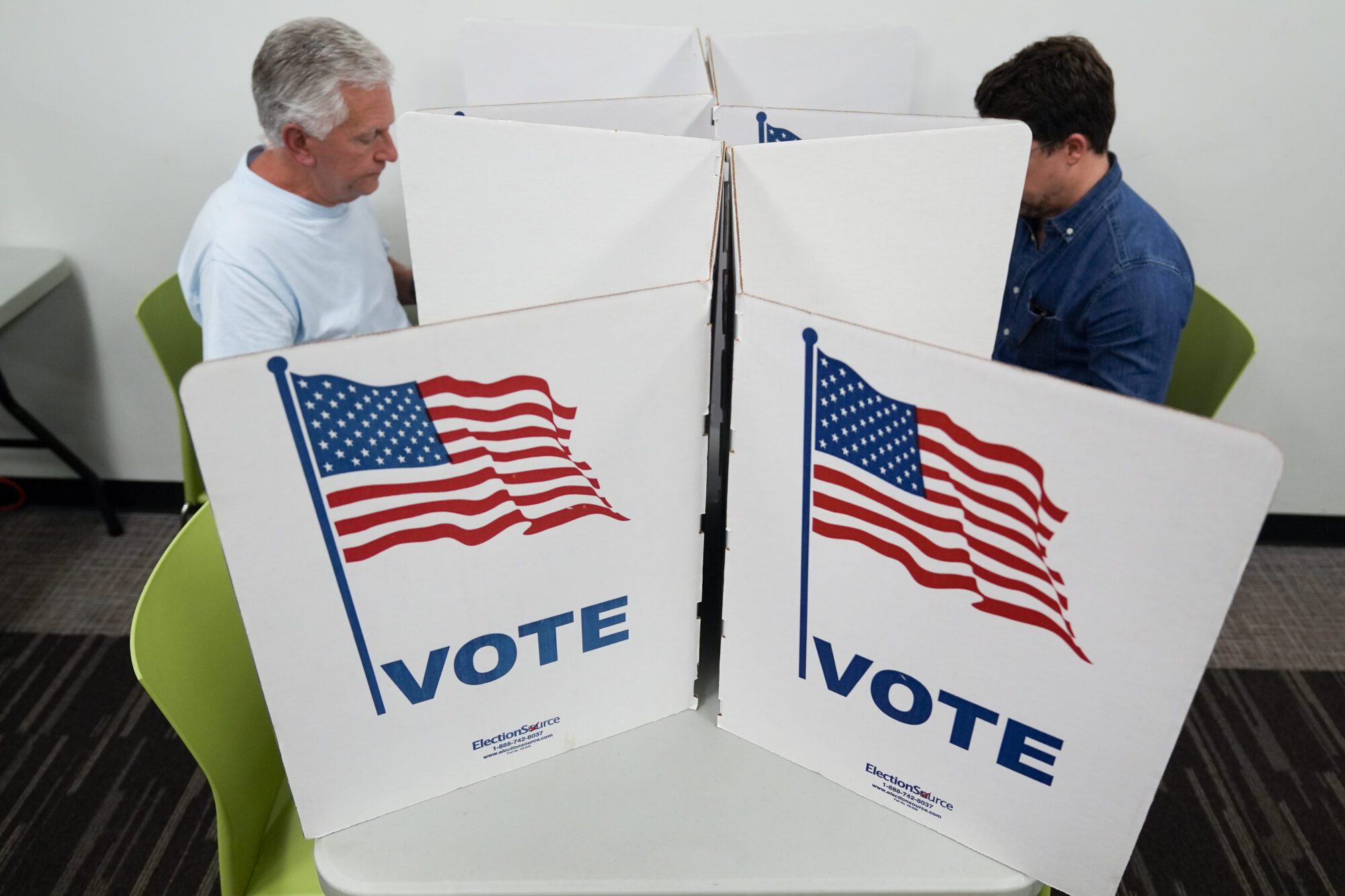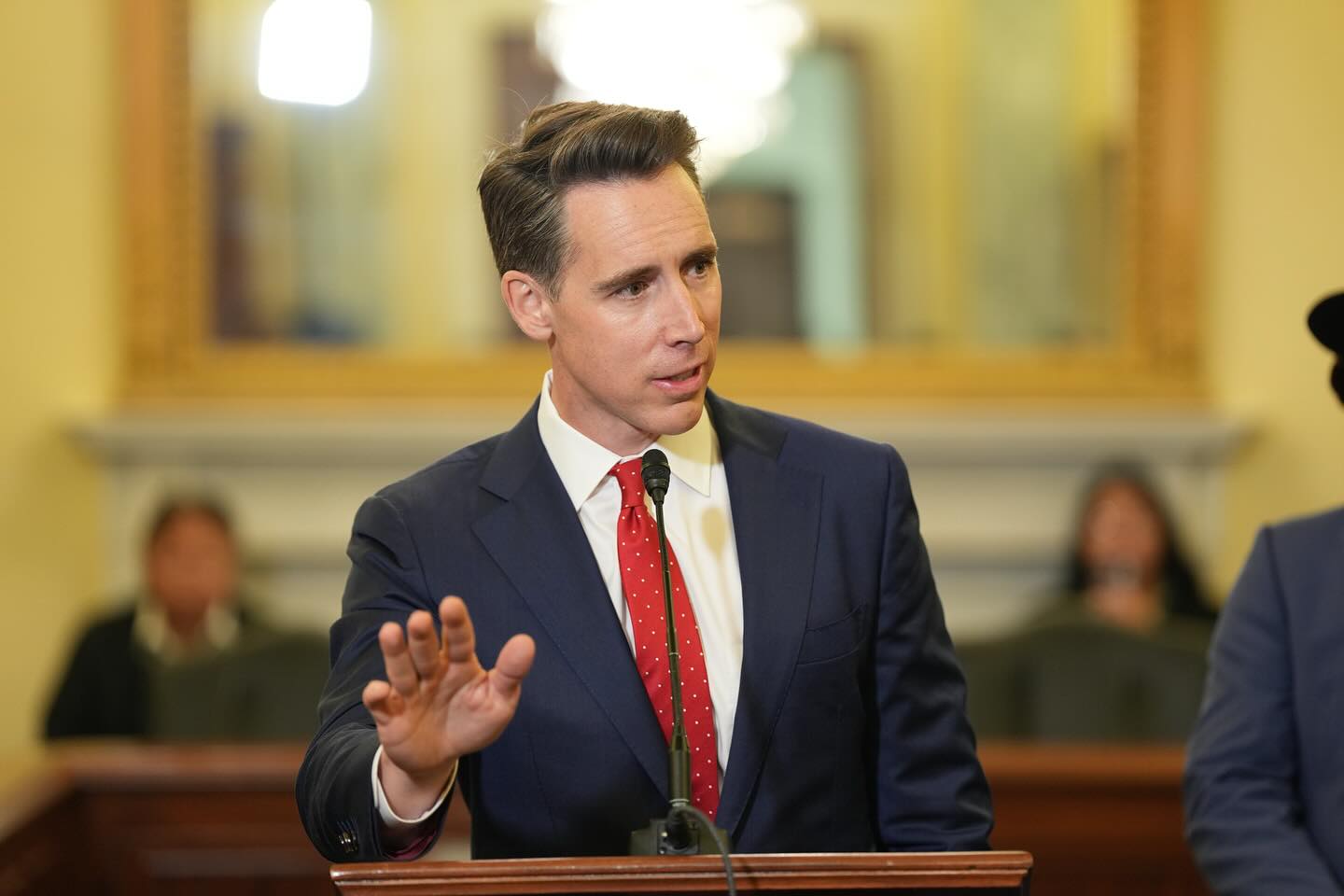
(Photo from Senator Josh Hawley on Facebook)
- The Missouri senator would prefer if the president listened to him and helped get his latest pro-labor legislation into law. So would the Teamsters who support the new bill.
He was the first president to walk a picket line. And he crowed regularly about being the “most pro-union” president ever. But after four years as president, Joe Biden could not stop a growing working-class coalition, one that increasingly includes rank-and-file union members, from flocking to Donald Trump.
Reflecting on election night about the coalition that returned him to the White House, Trump called it “a historic realignment.” John McLaughlin wondered if it would endure.
While Republicans celebrated in the weeks after the election, Trump’s longtime pollster looked to the future.
“Right now, these Trump voters – the GOP is just renting them,” McLaughlin told RealClearPolitics. Speaking of the coalition Trump cobbled together consisting of disaffected Democrats and traditionally liberal constituencies, he added that Republicans “need to make a decision if they’re going to make them permanent.”
Enter Sen. Josh Hawley, the Missouri Republican emerging as the right-of-center pro-labor leader.
“Look at what Donald Trump achieved. He achieved victory based on this coalition, and he deserves tremendous credit for making it possible, and he knows it,” Hawley said in an interview before picking up where Trump’s pollster left off. Hawley is asking his Republican colleagues whether they want their new-found working-class support “to begin and end with Donald Trump.”
His framework for pro-union legislation amounts to something of a downpayment. It is a set of proposals to reform the way businesses interact with organized labor, from requiring worker rights to be displayed on a job site to prohibiting “unsafe work speed quotas.” And soon Hawley will introduce legislation mandating accelerated negotiations between unions and employers.
A 2022 Bloomberg Law analysis found that the average time between workers voting to unionize and reaching their first contract with employers was 465 days. The Hawley bill would mandate that once workers vote to form a union, the employer and employees must begin the negotiations process within 10 days. It is a significant reform, which unions have wanted for years. Two Democrats have already promised to co-sponsor: Sens. Cory Booker of New Jersey and Gary Peters of Michigan. But its author is unusual in that Hawley comes from a party traditionally more favorable to corporations than workers.
Hawley has embraced the heterodoxy. Last year he abandoned his support for right-to-work laws, policies which bar unions from requiring workers to pay dues as a condition of employment. Before that, Hawley introduced legislation that could have easily come from the desk of socialist firebrand Bernie Sanders. One was a bill to cap credit card interest rates; another sought to overturn the Supreme Court’s campaign finance decision, Citizens United.
Neither was well-received in traditional conservative precincts. The latter earned Hawley a rebuke from the business-friendly Wall Street Journal editorial page. But Hawley represents a vanguard of a New Right, and while his bill mandating accelerated negotiations between labor and business faces an uphill battle in the Senate, skepticism of corporate power is increasingly in vogue among the GOP because of Trump’s ascendancy.
“As conservatives, who are now benefiting from the support of working people, it’s time we deliver for them and bring into actuality this Trump realignment, this working-class realignment of the Republican Party,” Hawley said of his efforts. “This is my project.”
In this, the president is sympathetic. Trump delights in bragging about how he peeled union votes away from Democrats. He invited Teamsters president Sean O’Brien to address the Republican Convention in Milwaukee without any preconditions about what the union boss could or couldn’t say on stage. Later when the Teamsters declined to endorse him or former Vice President Kamala Harris, Trump portrayed the non-endorsement as a tacit repudiation of Democrats.
Trump and Hawley have spoken in the days since the inauguration. A source familiar with those calls reports that the president is generally supportive of Hawley’s pro-labor legislation. A senior White House official did not dispute that characterization, telling RCP that “the president will never turn his back on union voters.”
The administration made their commitment explicit on the campaign trail where Vice President J.D. Vance often bemoaned the “tragedy” of declining union membership in the private sector.
“I think what we see as our job in national policy is to protect as many workers’ jobs as possible, to promote tax and spending and tariff policies that promote large scale economic growth and actually give workers more their take on pay and more jobs to begin with,” Vance told RCP last September before adding that the incoming administration would work to make the job of unions “easier, not harder.”
This was a winning political argument. Now those voters are likely to expect results. Hawley says Republicans must embrace working class voters or, he warns, “we will never be a majority party.”
“The Republican Party right now is defined largely by one very specific personality who’s been quite successful,” said Abigail Ball, executive director of the conservative think tank American Compass. “If we’re going to see this be a long-lasting realignment,” she continued, “where working class voters take seriously that conservatives want to deliver, we have to do real long-term policy work.”
If Trump exits the Oval Office in four years without overseeing any such “policy work,” Hawley fears that the GOP is at risk of “reverting to the days where we are a wholly owned subsidiary of these mega corporations.” That comes with its own familiar result: a return to what Hawley calls “the political wilderness.” There is no majority coalition there, he said, warning his party, “We know this because we’ve lived it for 30 years.”
An early test comes in the person of Trump’s nominee for labor secretary, Lori Chavez-DeRemer. She is a former member of Congress, a Democrat from Oregon with well-defined, pro-union views. Her support of the PRO Act, which would pre-empt state right-to-work laws, makes her anathema to pro-business Republicans. Kentucky Sen. Rand Paul promised to oppose her and predicted she could lose as many as 15 GOP votes. Democrats like Massachusetts Sen. Elizabeth Warren, meanwhile, seemed pleasantly surprised and signaled a willingness to back her. “I think she’d be terrific,” Hawley said.
If there is indeed a realignment, it is incomplete. Republicans are not as comfortable as Hawley on a picket line. They are more inclined to side with industry. And while Trump seems eager to keep union voters in the GOP fold, during his first time in office he sided with business. His judicial nominees, as well as his nominees to sit on the National Labor Relations Board, were undoubtedly labor skeptics. Trump even praised Elon Musk’s perceived penchant for firing Tesla workers interested in starting a union.
“You’re the greatest cutter,” Trump told Musk during a live conversation on X. “I look at what you do. You walk in and say, ‘You want to quit?’ I won’t mention the name of the company, but they go on strike, and you say, ‘that’s OK. You’re all gone.’”
The richest man in the world, Musk is now not just a supporter but a key member of the Trump administration. The second and third richest men in the world, Mark Zuckerberg of Facebook/Meta and Jeff Bezos of Amazon, attended Trump’s second inaugural. All three have, at one time or another, been caught up in lawsuits over their treatment of employees looking to unionize.
The proximity of that much capital to the president does not worry Hawley. “There’s only one person who runs the Trump administration, and as many who think otherwise, sadly, learn, that one person is Donald J. Trump,” he replied when asked about the new coziness between Silicon Valley elite and the populist president. “So I have no doubt that Jeff Bezos would love to be in the president’s inner circle,” he added. “Do I think that the president is going to ultimately listen to him? No.”
The Missouri senator would prefer if the president listened to him and helped get his latest pro-labor legislation into law. So would the Teamsters who support the new bill.
“Legislation gets put forward, oftentimes, as a political chess piece and part of the game, but the ultimate result is that it doesn’t see the light of day,” said Teamsters spokeswoman Kara Deniz. Unions have watched that dynamic play out over and over again across administrations, she said. Led by O’Brien, though, the Teamsters are increasingly open to working across the partisan divide. “The priority is to wherever we can, whether it’s Democrat, Republican, or independent, to work together with any political leader that is going to support workers,” Deniz told RCP.
“Hawley has been that person,” she said.

